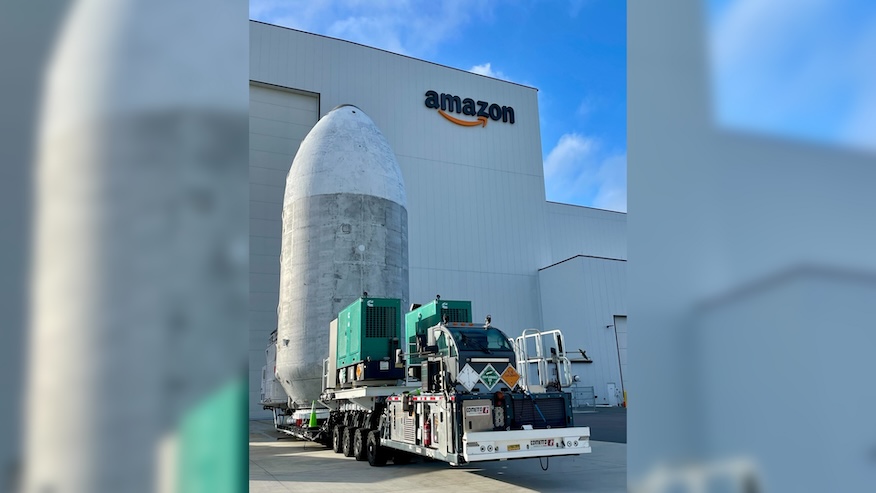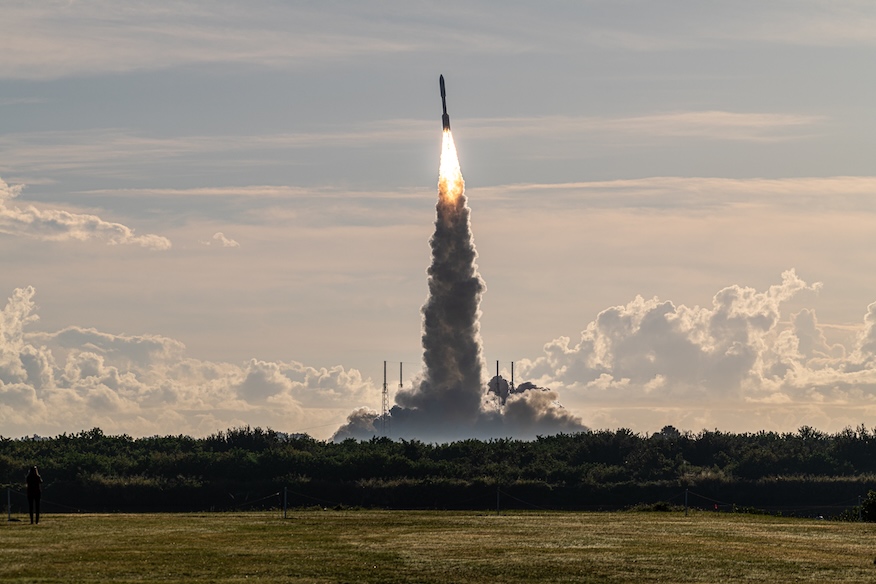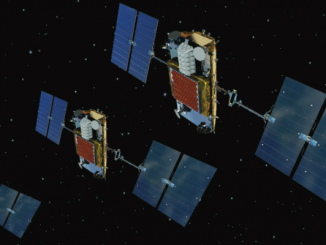
Update Oct. 11, 12:21 a.m. EDT (0421 UTC): SpaceX delayed the mission until Sunday, Oct. 12.
Update Oct. 9, 1:20 p.m. EDT (1720 UTC): SpaceX delayed the mission until Saturday, Oct. 11.
SpaceX was preparing to launch 24 of Amazon’s Project Kuiper broadband internet satellites Thursday night, but punted the mission to Saturday as it faces challenging weather conditions during its initial window of opportunity.
The mission, dubbed Kuiper Falcon 03 (KF-03), is the third and final launch that Amazon booked using a Falcon 9 rocket. The tech giant announced the contract with SpaceX in December 2023.
Liftoff from pad 40 at Cape Canaveral Space Force Station is scheduled for no earlier than Oct. 12 at 8:29 p.m. EDT (0029 UTC). The Falcon 9 rocket will fly on a north-easterly trajectory upon departure from the launch pad.
Spaceflight Now will have coverage beginning about an hour prior to liftoff.
On Wednesday, the 45th Weather Squadron forecast a 45 percent chance for favorable weather during the launch window. A ten percent decrease in favorability from its outlook published on Tuesday.
The booster recovery weather is also listed as a “high” risk, according to meteorologists, on a scale of low-medium-high.
“A low-pressure system is forecast to spin up in the vicinity of the Florida peninsula on Thursday, which will aid in the advection of ample moisture and instability across the spaceport,” launch weather officers wrote. “With strong east-northeasterly flow and ample moisture from both the Atlantic and Gulf, expect enhanced, fast-moving shower activity Thursday evening with additional pulses generated from the low to the south.”
The launch weather forecast was not expected to improve during Friday’s launch window.
SpaceX will launch this mission using the Falcon 9 first stage booster B1091, which will launch for a second time. The booster, which will eventually be used as a Falcon Heavy core booster, previously launched the KF-02 mission.
B1091 is set to perform an autonomous landing on the drone ship, ‘Just Read the Instructions,’ a little more than eight minutes after liftoff. If successful, this will be the 138th landing on this vessel and the 517th booster landing to date.
The Kuiper deployment sequence will begin more than 56 minutes after liftoff and wrap up less than eight minutes later. It will bring the satellite constellation up to a total of 153 in low Earth orbit.
This is the sixth overall mission supporting the Kuiper constellation, following three launches onboard United Launch Alliance Atlas 5 rockets and two onboard Falcon 9 rockets.




